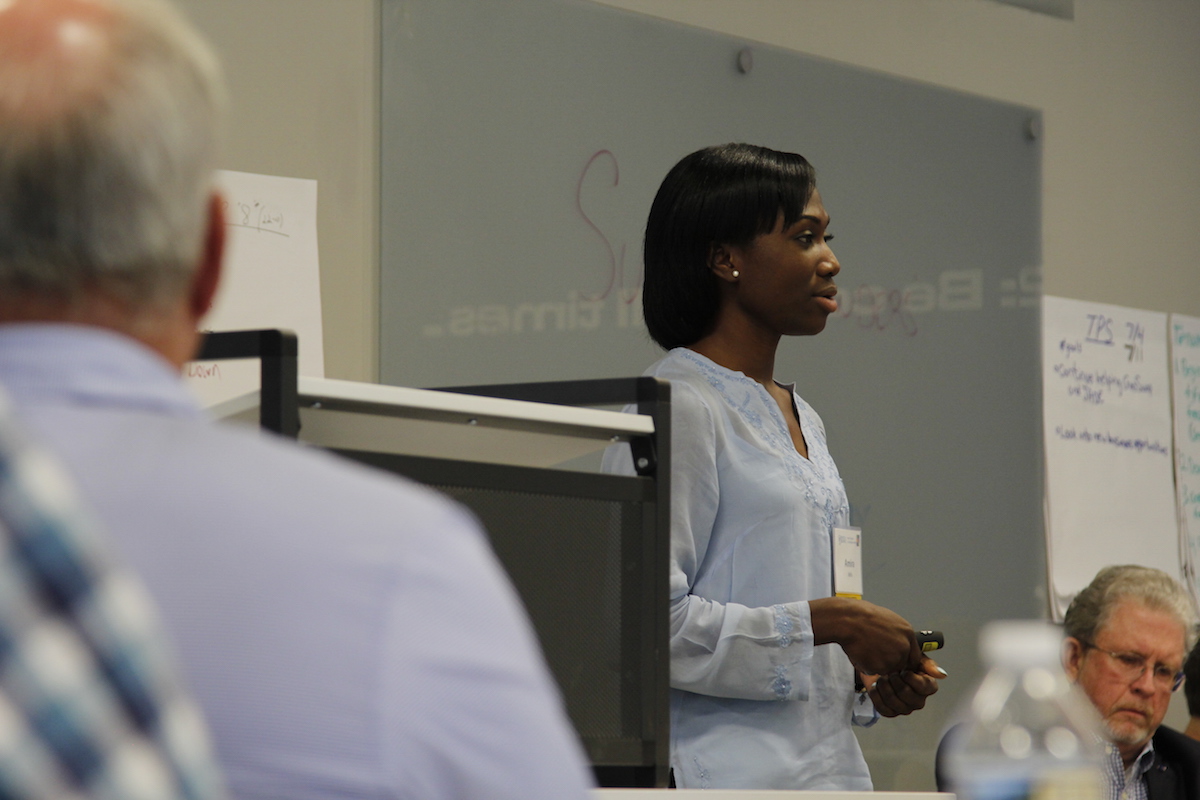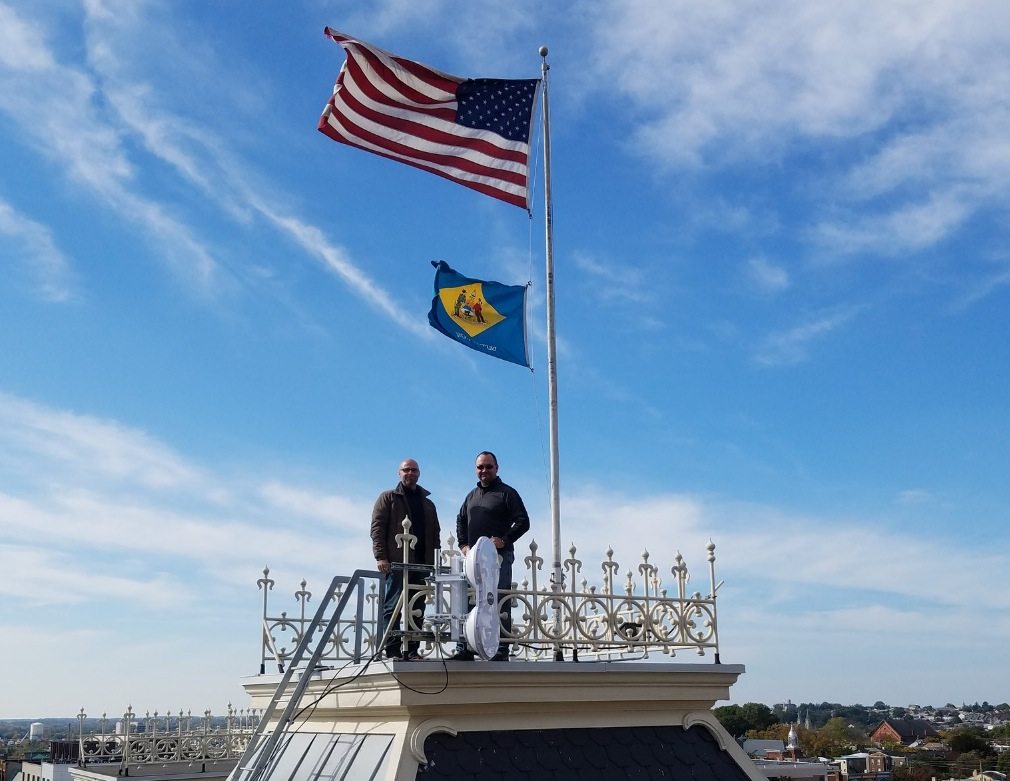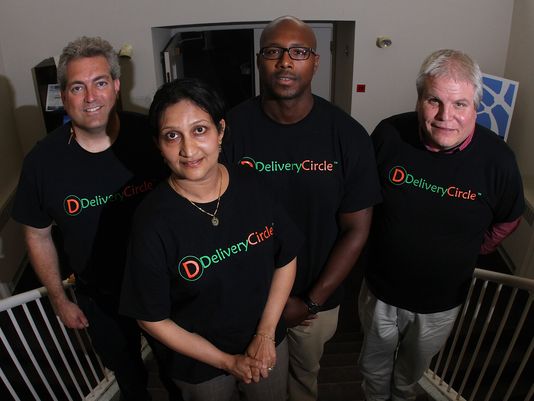Early tech startup scenes have two needs. They need more companies. They also need better ones.
In the Technical.ly newsroom, we often discuss and debate how serious the youngest companies and their teams in our communities are. The debates almost always begin with the same question: Are they real?
What does it mean to be real? For companies, the idea must be clear and, more importantly, the team must be serious. By nature of the fledgling status of a startup, there’s limited track record, just a mix of what our reporters hear from those in the know and what we see ourselves. And so that’s what we often debate: What do you think of that company, are they real?
It’s become so common we’re making this evaluation a new annual look at the tech startups we report on daily. This is our inaugural Delaware realLIST — we’ve recently shared similar ones for Philadelphia, Brooklyn, Baltimore and DC.
We can bring together a Technical.ly realLIST on any manner of subjects we report on but this first is among the most-debated within our community: tech startups. And since the idea of a tech startup is so widely fought over, we gave ourselves some rules to follow:
- Founded no earlier than 2014, following an early startup definition of ours. (That kept us from including representative stalwarts like IndieGameStand, surging biotech spinout White Dog Labs and health IT startup Kurbi.)
- Derive most of their revenue from an innovative product, so no agencies like CompassRed or The Barn Creative or more familiar consumer good product companies like Levitea. (Even Fair Square Financial seems just a bit too much a traditional credit card offering to stack up here.)
- Show some track record of success, so early glimmers at places like Bookbandit or ecommerce outfit Mahoney Tall and Fit didn’t make the cut yet.
- Remain independent, meaning not having been acquired (like Zenbanx) or gone public.
- Headquartered and primarily staffed in Delaware (no Hoboken-based LendEDU or Aztec Exchange, for example)
It’s worth stating the obvious: These rankings are not scientific. These are simply the 10 youngest product companies we’re most excited to follow (although we do love a good case for why we might be wrong).
And so, after nearly three years reporting in the First State, this is Technical.ly Delaware’s inaugural realLIST.

10. Shrinkabill
- Founder Jordan Wolff still has a day job. That usually means one of two things: The company isn’t where it needs to be or the founder hasn’t fully committed to getting it there. Still, along a trend of similar services that offer to consolidate your debt to save money, we’re watching where this Middletown offering goes. He certainly has the advantage of earned media customer acquisition.

Darrick Hayman has launched his own BIM startup. (Courtesy photo)
9. DLHcad
- In the eyes of tech scene veterans, there’s a world of difference between building cutting edge software and using it. At present, DLHcad, the architecture and construction modeling startup founded in 2014, is decidedly the latter. But, gosh, Newark native Darrick Hayman’s use of 3D rendering and virtual reality to push development of the building trades has very real possibilities. Plus, shouldn’t Delaware Technical Community College put some weight behind one of their graduate entrepreneurs?
8. itr8group
- One of the most common first anchors of an early tech community is a collection of creative agencies and web design firms. They’re services businesses that remain important to diverse tech sets. But they have a reputation of never growing to any great size. In the strictest sense, Wilmington Millennial renaissance poster boy Rory Laitila, sweet and soft-spoken, is still primarily running a one-man contract dev firm. Since the realLIST is meant to focus on product companies, it’s worth clarifying that Laitla seems uniquely likely to scale a software product of his own — if only because he’s approached the age-old services-to-product transition differently already and sees himself in the startup space. Fortunately, he’s experimenting with a still-in-development product called DropPanel. And if you’re hoping for a tech-powered lift for Wilmington, you need to hope for more founders like Laitila who can grow a product company with scalable, recurring revenue. So here’s a challenge, Rory: Build a great, big product company.

Vibrating Therapeutic Apparel founder Amira Idris presents her venture at the Summer Founders Program demo day. (Courtesy photo)
7. Vibrating Therapeutic Apparel
- Former University of Delaware track star Amira Idris has been racking up awards lately for her medical device line to address phantom pain for amputees called Vibrating Therapeutic Apparel — from swimming with local sharks to college pitch nights to our own Delaware Entrepreneur of 2016 award. Watch her work a networking event and you’ll get the sense that she has a real chance to build the network it takes to navigate the obstacle-ridden medical device space.
6. Chronicle
- Disclaimer: Kris Younger (Netscape and AOL veteran) hasn’t even launched this product, a Blockchain-based app called Chronicle aimed at securing digital document storage. You might recognize Younger from area tech events (including a TEDxWilmington talk) and the years he’s spent in product development with his company Tioga Digital. But given Delaware’s pursuit of Blockchain startups and Younger’s track record, the hope is already very real for this one.

Mac Nagaswami in front of his Adams Street home. (Courtesy photo)
5. Carvertise
- Let’s get it out of the way: They don’t wanna be called a startup anymore. Still, what makes a founding date? We took a hard look at 2012, the year that Carvertise was first launched by University of Delaware students. We follow a regular carousel of UD student startups because they represent an important vibrancy, but few stick, and even fewer stick in Delaware. Ultimately, we felt Carvertise deserved a second glance here, as the company has changed enough since its initial launch (from decals on automobiles to a more versatile brand advertising startup). You might put its actual launch date closer to 2015. They’ll likely need to continue to evolve, but we remain fans of founders Mac Nagaswami and Greg Star, both of whom are among the hardest networkers we know in the Delaware startup set. We love seeing them beat down a sales path across the mid-Atlantic, making Delaware their base while still knowing they need to gobble up more ground.
4. GoSend
- Interesting startups in far flung places often leverage something unique about their location. Look at Wilmington-headquartered international shipping facilitator GoSend. Founded in 2014, the company sets up big overseas purchasers with a tax-free Delaware delivery destination. Like any logistics effort, there’s a mess of delivery software required in the process and it’s a specific enough corner of a big market to warrant efficiency creation. In the fall, the company, which is part of a clutch of businesses related to Pennsylvania-based Transit Systems, brought on a new CEO, Eric Foster, who remains a limited partner with MissionOG, the Philadelphia-area investment firm. Among Foster’s expertise? Mergers and acquisitions.

WhyFly cofounders Mike Palita (at left) and Mark Thompson on the roof of the Grand Opera House in Wilmington, Del. (Courtesy photo)
3. WhyFly
- Delaware boosters want to see more examples of entrepreneurial spinoff thrills from the state’s credit card sector. Among the ING Direct diaspora that wear orange like a flag of pride, there is likely no better pair to bet your fortunes on than former ING CTO Mark Thompson and Mike Palita. Though they have a pair of other experiments, their fixed wireless company — which had them on the roof of Wilmington’s Grand Opera House — represents a quietly trending sector and a fascinating intersection of the interests of these two tech executive nerds. But those two nerds are entering the highly regulated world of internet services providers that is dominated by giants. They’re gonna have to hustle to make a big impact. Hey fellas, how fast can you make WhyFly your one and only focus?
2. SimUCare
- Founded in 2015, it’s another medical device company with a hell of a lot of hype already. Given how fraught bringing medical devices to market can be, skepticism is warranted here. But in the great tech transfer arms race of today, colleges are chasing legacies for entrepreneurial success, and SimUCare is one the University of Delaware’s biggest contributions to date. Nursing faculty members Amy Cowperthwait and Heiddy DiGregorio and alumni Amy Bucha and Robert Tilly are developing a product line of more affordable tools to test and practice basic medical procedures. They’ll need to keep some startup shine to the sometimes-dull and bureaucratic medical device world.

DeliveryCircle founder and CEO Vijaya Rao (second from left) with members of the DeliveryCircle team. (Courtesy photo)
1. Delivery Circle
- This marketplace for door-to-door delivery has grown as fast as any consumer-minded Delaware startup today. Fortunately founder Vijaya Rao seems to like the pace. The crown jewel of the Emerging Enterprise Center, Rao is often a blur at events and in email. Good thing: she has work to do. They’re already in nearly a dozen markets (that traction is why they top our list) but clearly remain a tiny speck in a pathway that likely runs directly into the coming intersection of autonomous vehicles and logistics companies. Does that make Rao a likely acquisition target or bound to be driven over? That’s exactly why we’re all watching so closely. Rao is doing what we want more Delaware tech companies to do.
A few observations from the list:
- Where’s the fintech? For all the hype around Wilmington’s promise as a fintech hub, the product startups are less established here. Consider the one-event-long history of the state’s first fintech meetup.
- Short on proper tech product startups. In the purest sense, there isn’t a single tech product startup, the kind of company tech cities care deeply about for their high growth and high margin possibilities.
- There are at least four founders of color and five female entrepreneurs. Entrepreneurial circles are known for being very white and very male. Delaware is no different. Yet, among the more serious high-growth companies in Delaware, there is a degree of more inclusivity.
- Outsized University of Delaware presence. From a tech transfer spinout to a pair of recent graduate entrepreneurs, UD has meaningful ties to this list.
- Two medical devices. Though we at Technical.ly primarily follow software and other digital work, the two medical device companies on the inaugural realLIST are too relevant to ignore. They’re led by founders, growing lean and represent innovative efforts from UD grads with a modern approach to company building.
- Just three raised outside capital. If there are limited scalable tech product startups and less of a track record of investors, the cycle will continue.
So, that’s our inaugural Delaware realLIST. What will change next year? What would you change this year? Tell us in the comments.
Before you go...
To keep our site paywall-free, we’re launching a campaign to raise $25,000 by the end of the year. We believe information about entrepreneurs and tech should be accessible to everyone and your support helps make that happen, because journalism costs money.
Can we count on you? Your contribution to the Technical.ly Journalism Fund is tax-deductible.
Join our growing Slack community
Join 5,000 tech professionals and entrepreneurs in our community Slack today!

The person charged in the UnitedHealthcare CEO shooting had a ton of tech connections

The looming TikTok ban doesn’t strike financial fear into the hearts of creators — it’s community they’re worried about

Where are the country’s most vibrant tech and startup communities?


